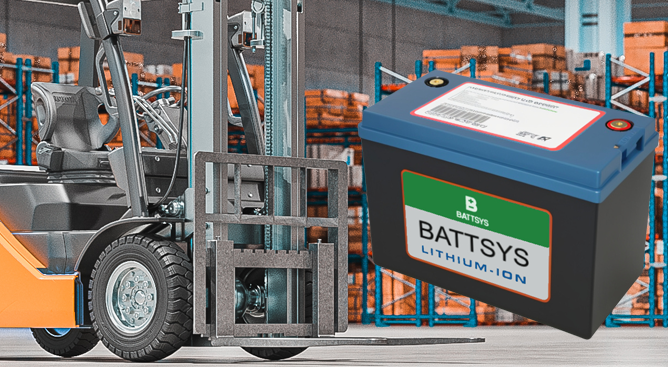Science popularization tips: How to choose the right forklift battery?
Choosing batteries for industrial vehicles can be complex - there are too many options to determine which factors are most important: battery capacity, chemical composition, charging speed, cycle life, brand, price, etc. If you already know what will happen to your battery, continue using the tool above to select the lithium forklift battery and see the available options.
If you want to know which requirements of your material handling operations are crucial for choosing the appropriate forklift battery, please read the following guide.
(1) Starting with the brand and model of your forklift and forklift specifications
The power supply of the equipment you have chosen is mainly determined by the technical specifications of the forklift. As users of diesel or propane powered Class IV and V sit on forklifts continue to switch to Class I electric forklifts, over half of today's forklifts are battery powered. Durable and high-capacity lithium-ion batteries can be used for the most demanding applications of handling heavy and large loads such as steel, wood, paper, and beverages.

The following are the main specifications you need to check when choosing
forklift lithium batteries:
a、 Battery voltage (V) and capacity (Ah)
There are multiple standard types of batteries available for various forklift models based on voltage (12V, 24V, 36V, 48V, 72V, 80V) and different capacity options (from 100Ah to 1000Ah and higher).
For example, a 24V 210Ah battery is typically used for 4000 pound (1.8 ton) electric pallet trucks, while an 80V 1050Ah battery is suitable for balanced sit on forklifts to handle loads of up to 20000 pounds (9 tons).
b. The size of the battery casing
The size of the forklift battery box is usually unique, so finding the perfect and precise fit is crucial. In addition to different battery sizes, it is also important to consider the type of cable connector and its position on the battery and truck.
Some OEM manufacturers (such as Combilift, AisleMaster) have two different sizes of battery packs. The TOM series lithium battery is a great example of how batteries are designed to meet the unique specifications of certain devices.
c. Battery weight and counterweight
Different forklifts have different recommended battery weight requirements, and you should consider choosing lithium batteries. An additional counterweight is added to the battery to balance the total weight of the forklift used for heavy-duty applications.
d. Lithium ion and lead-acid forklift batteries for different types of forklifts (Class I, II, and III)
Lithium batteries are most suitable for Class I, II, and III forklifts and other off-road electric vehicles, such as sweepers, tugboats, golf carts, etc. What is the reason? Lithium batteries have three times the lifespan of lead-acid technology, excellent safety, minimal maintenance, stable operation at low or high temperatures, and high energy capacity in kilowatt hours.
LFP (lithium iron phosphate) and NMC (lithium manganese cobalt oxide) batteries are both used in electric forklifts. Recent tests by Sandia Laboratories on lithium battery types have shown that LFP batteries are actually more durable and reliable than NMC.
In most cases, lithium-ion batteries are a more economical and efficient choice for industrial applications than any lead-acid battery, including AGM or TPPL batteries.
Until recently, lead-acid batteries have been widely used in all types of forklifts. TPPL is a newer version of this type of battery. It has higher efficiency and charging speed, but only compared to traditional immersion lead-acid technology or sealed lead-acid batteries such as absorbent glass mat (AGM).
In most cases, lithium-ion batteries are a more economical and efficient choice for industrial applications than any lead-acid battery, including AGM or TPPL batteries.
e. Forklift - Battery Communication
Controller Area Network (CAN bus) allows microcontrollers and devices to communicate with each other's applications without a host. Not all battery brands are fully integrated with all forklift models through the CAN bus. There are different types of batteries equipped with external Battery Discharge Indicators (BDIs), which provide visual and audio signals to the operator regarding the battery charging status and preparation work.
At OneCharge, we offer two options and are ready to develop CAN options suitable for any forklift brand and model.
